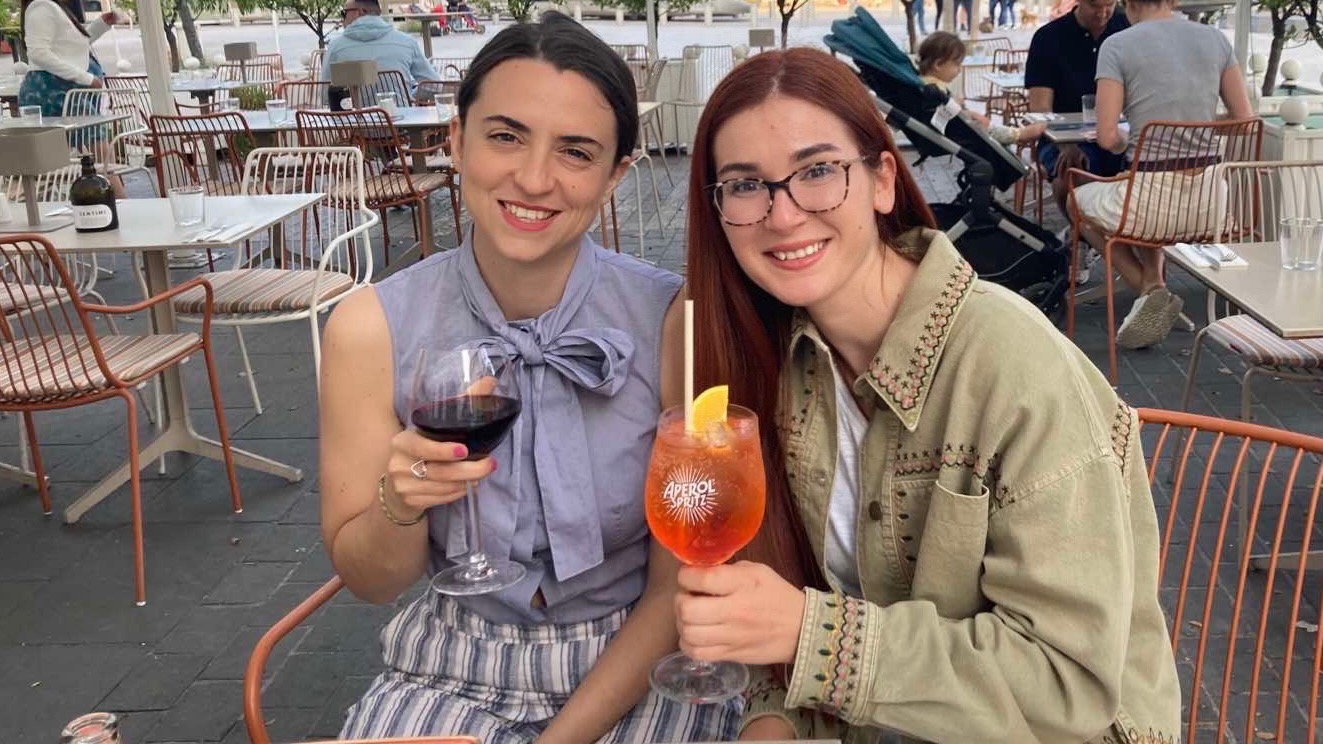RALFE in Nice with Maša and Luisa
May 25, 2023

On adjectives, wh-words, and domains for dependencies.
May 25 and 25 at the Université Côte d’Azur, in Nice, France, Maša and Luisa are at Rencontres Autour de la Linguistique Formelle, aka RALFE, presenting their work on adjectives in Bosnian/Croatian/Serbian, and wh-words in Valdôtain Patois.
Maša Bešlin / Distinct locality domains above and below the ‘word’ level: Evidence from Bosnian/Croatian/Serbian adjectives
Marantz (2001, 2007) proposes that phases should be recognized both above and below the ‘word’ level. He assumes that phases below the ‘word’ level (henceforth, DM phases) are phases à la Chomsky 2000. This conclusion is adopted in Embick 2010 and much other work in Distributed Morphology and supported by the fact that the Phase Impenetrability Condition 2 (PIC2) largely makes the correct predictions for both DM phases and Chomskyan phases (e.g., Chomsky 2001, Sigurðsson 2002, Embick 2010). As I show, however, different diagnostics are used to identify the two types of phases, raising the question of whether these types should be equated. This leads to the question of whether the inventory of phase heads is identical in the two domains. Using data from Bosnian/Croatian/Serbian (BCS), I argue that the answer to this question is negative: adjectives (aPs) are DM phases, but not Chomskyan phases. This is a novel conclusion which highlights the need for a more sophisticated understanding of phase theory. It also raises further questions, in particular: How do we draw a line between domains subject to DM phasehood and those subject to Chomskyan phasehood, given the established problems with the notion of ‘words’ (e.g., Marantz 2001)?
Luisa Seguin / Clause internal wh-words are actually fronted: Evidence from Franco-Provençal Valdôtain for a dedicated whP in the Low Left Periphery
In this talk I present and analyze the syntax of wh-movement in the Franco-Provençal language Valdôtain Patois (ValPa), an understudied variety spoken in the Aosta Valley (Italy). Wh-words in ValPa can either be fronted or, in highly presuppositional contexts, occur clause-internally. I argue that ValPa clause-internal wh-words do not appear in-situ, but rather are displaced to the Low Left Periphery at the edge of vP. Based on evidence from intervention effects, inverse scope, and parasitic gaps, I further show that wh-words undergo overt movement to the High Left Periphery. The different word orders are then derived via a PF copy deletion mechanism à la Bošković (2002). The optionality in wh-fronting is thus not accounted for in narrow syntax: syntax overgenerates and undesirable outcomes are filtered at PF and LF.

